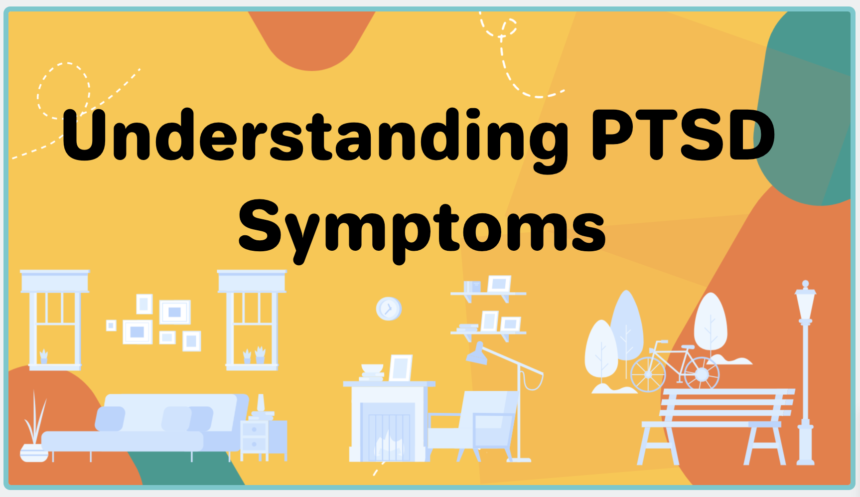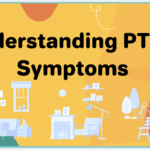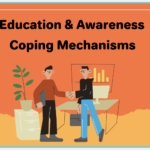The effects of these sleep disturbances extend far beyond the bedroom. The cumulative impact of insomnia and nightmares can significantly impair daily functioning, leading to challenges in social interactions, work performance, and overall quality of life. The inability to concentrate and emotional fluctuations can make engaging in everyday activities increasingly difficult.
Post-Traumatic Stress Disorder (PTSD) is a mental health condition that often arises after exposure to traumatic events, and it is particularly prevalent among military veterans in the UK. This debilitating disorder can significantly affect one’s daily functioning and quality of life, with sleep disturbances being one of the most common and debilitating symptoms. Veterans may experience persistent memories of traumatic events, hyperarousal, and avoidance behaviors, all of which can disrupt normal sleep patterns.
The psychological impact of PTSD often manifests in various disturbances during sleep, including insomnia and frequent nightmares. Insomnia, characterized by difficulty falling asleep, staying asleep, or waking up early, can lead to chronic fatigue, decreased cognitive function, and heightened emotional distress. Conversely, nightmares may involve vivid recollections of traumatic experiences that not only interrupt sleep but also exacerbate anxiety and fear, creating a vicious cycle that contributes to overall sleep disorder.
Physiologically, PTSD can lead to changes in the body’s stress response system. The hypersensitivity of the hypothalamic-pituitary-adrenal (HPA) axis may result in elevated levels of cortisol, the stress hormone, which can hinder the ability to achieve restful sleep. Additionally, veterans may exhibit increased physiological arousal, which can trigger a state of hypervigilance that significantly interferes with relaxation and the ability to fall asleep. This cycle of heightened arousal and disrupted sleep can further worsen the psychological symptoms associated with PTSD, making effective management crucial.
Addressing PTSD and its impact on sleep requires a multifaceted approach, including therapy, medication, and lifestyle adjustments. Understanding the relationship between PTSD and sleep disturbances is essential for developing effective treatment strategies that not only alleviate the symptoms of PTSD but also restore healthy sleep patterns.
The Nature of Sleep Disturbances in PTSD
Individuals diagnosed with Post-Traumatic Stress Disorder (PTSD) frequently experience a range of sleep disturbances that profoundly affect their overall well-being. Among these disturbances, insomnia is particularly prevalent. Insomnia, characterized by difficulty falling asleep, staying asleep, or waking too early, often manifests in veterans as a struggle to achieve restorative rest. This impaired sleep can help perpetuate a cycle of fatigue, reducing cognitive function and emotional resilience during waking hours.
Furthermore, nightmares are a significant concern for many individuals coping with PTSD. These vivid, distressing dreams often replay traumatic experiences, eliciting intense fear, anxiety, or sadness upon awakening. Research indicates that nightmares occur more frequently in PTSD sufferers compared to the general population, intensifying feelings of helplessness and contributing to avoidance behavior, wherein individuals may forgo sleep altogether to escape the possibility of reliving their trauma in dream form.
The effects of these sleep disturbances extend far beyond the bedroom. The cumulative impact of insomnia and nightmares can significantly impair daily functioning, leading to challenges in social interactions, work performance, and overall quality of life. The inability to concentrate and emotional fluctuations can make engaging in everyday activities increasingly difficult. Moreover, the constant state of alertness and anxiety tied to sleep disturbances may exacerbate symptoms of PTSD, creating a vicious cycle that diminishes the individual’s ability to heal. Recognizing the characteristics and consequences of these disturbances is crucial for developing effective treatment strategies for veterans suffering from PTSD, enabling them to reclaim their sleep and, ultimately, their lives.
The Connection Between Trauma and Nightmares
Nightmares are a common symptom experienced by individuals suffering from Post-Traumatic Stress Disorder (PTSD). These distressing dreams often serve as a manifestation of the traumas that individuals have encountered, creating a cyclical pattern of fear, anxiety, and sleep disturbances. Research indicates that traumatic experiences can disrupt the normal sleep cycle, leading to a higher incidence of nightmares. The connection between trauma and nightmares is multifaceted, often rooted in the emotional and psychological response to distressing events.
When a person experiences a traumatic event, the brain’s way of processing this information can become impaired. Memories associated with the trauma may remain vivid and haunting, often resurfacing during sleep. Nightmares may emerge as the mind attempts to reconcile these unresolved feelings and memories. The nightmares often incorporate elements from the traumatic experience, leading to re-experiencing feelings of fear, helplessness, and horror. This phenomenon not only compromises the quality of sleep but also reinforces a cycle of anxiety that may affect waking life.
The emotional load tied to these traumatic memories significantly influences the content of nightmares. Individuals may find that their sleep disturbances are exacerbated by specific cues that remind them of their trauma, leading to increased anxiety and fear as they approach bedtime. Consequently, this can lead to persistent insomnia, as individuals might develop a dread of sleeping due to fear of experiencing nightmares. Understanding this intricate relationship between trauma and nightmares is vital for effective treatment and management of PTSD, including therapies aimed at reducing nightmare frequency and improving overall quality of sleep.
Coping Mechanisms for Nightmares and Insomnia
Nightmares and insomnia present significant challenges, particularly for individuals suffering from PTSD. However, incorporating effective coping mechanisms can lead to improved sleep quality and a reduction in distressing symptoms. One foundational strategy is establishing a consistent bedtime routine. By going to bed and waking up at the same time each day, the body can regulate its internal clock, promoting a more natural sleep cycle. This routine may include activities such as reading, meditating, or practicing gentle stretches before bedtime, helping to signal to the body that it is time to wind down.
Creating a sleep-conducive environment is also crucial for mitigating the effects of nightmares and insomnia. This can be achieved by ensuring that the sleep space is dark, quiet, and cool. Utilizing blackout curtains, white noise machines, or earplugs can help block out distracting stimuli. Additionally, minimizing the use of electronic devices before bedtime is advisable, as the blue light emitted from screens can interfere with the production of melatonin, a hormone that regulates sleep.
Moreover, relaxation techniques can play a significant role in managing sleep disturbances. Techniques such as deep breathing exercises, progressive muscle relaxation, and mindfulness practices have been shown to reduce anxiety and promote relaxation. Deep breathing can help calm an overactive mind, encourage focus on the present moment, and ease the transition into sleep. Mindfulness practices, including meditation, can further cultivate a sense of safety and well-being, reducing the likelihood of experiencing distressing dreams and improving overall sleep quality.
Exploring these coping mechanisms can empower individuals struggling with nightmares and insomnia to take charge of their sleep health journey while managing the complexities associated with PTSD. By implementing these strategies, it becomes possible to create an environment and mindset conducive to restful sleep.
Therapeutic Approaches to Address Sleep Issues
Sleep disturbances, including insomnia and nightmares, are commonly experienced by veterans suffering from post-traumatic stress disorder (PTSD). Addressing these issues through therapeutic interventions can significantly improve the overall quality of life. Among the most effective therapies is cognitive behavioral therapy (CBT), specifically tailored for insomnia (CBT-I). This approach focuses on changing the thoughts and behaviors that contribute to sleep difficulties. By identifying maladaptive sleep patterns and replacing them with healthier practices, CBT-I aids individuals in developing a more positive relationship with sleep. Techniques such as sleep restriction, stimulus control, and cognitive restructuring are utilized to facilitate restful sleep.
Another prominent therapeutic option is eye movement desensitization and reprocessing (EMDR). This method is designed to help individuals process and reduce distress associated with traumatic memories. EMDR involves guided eye movements that support the reprocessing of traumatic experiences, allowing veterans to integrate their memories in a less intrusive manner. By alleviating the emotional charge tied to these memories, EMDR can lead to a reduction in sleep disturbances, including traumatic nightmares that are common among those with PTSD.
In addition to these specialized therapies, incorporating relaxation techniques can further benefit veterans struggling with sleep issues. Approaches such as mindfulness meditation, progressive muscle relaxation, and deep breathing exercises may decrease anxiety levels and promote a sense of calmness before bedtime. Furthermore, support groups specifically geared towards veterans with PTSD can provide a shared space for individuals to discuss their sleep challenges, fostering community and mutual encouragement.
Ultimately, utilizing a combination of these therapeutic approaches can create a comprehensive strategy for managing sleep disturbances in veterans with PTSD. By addressing the underlying trauma and developing effective coping strategies, individuals can work towards achieving restorative sleep and improving their overall mental well-being.
The Role of Medication in Treating Sleep Disturbances
The management of sleep disturbances in individuals suffering from Post-Traumatic Stress Disorder (PTSD) often necessitates a multifaceted approach, with medication playing a crucial role. Insomnia and recurring nightmares can severely impact the quality of life for those affected by PTSD. Consequently, various pharmacological therapies have been explored to alleviate these sleep issues.
Commonly prescribed medications include selective serotonin reuptake inhibitors (SSRIs), which are primarily used as antidepressants. SSRIs, such as sertraline and paroxetine, have gained recognition for their ability to reduce the frequency and intensity of intrusive thoughts and nightmares associated with PTSD. Additionally, these medications can also promote better overall sleep patterns. Another group of drugs, known as benzodiazepines, may be utilized for short-term relief of insomnia; however, their use is often discouraged due to potential dependency and withdrawal issues.
Other treatment options include medications specifically designed for sleep disorders, such as trazodone, a commonly prescribed antidepressant that has sedative properties. Trazodone can help improve sleep duration and reduce awakenings during the night. Furthermore, the use of prazosin, primarily indicated for hypertension, has shown promise in mitigating nightmares among PTSD patients. Research indicates that prazosin might work by blocking the alpha-1 adrenergic receptors in the brain, which are involved in the formation of nightmares.
While medications can offer significant benefits in managing sleep disturbances, it is essential to consult healthcare professionals for a tailored approach. A doctor can provide guidance on the most appropriate medication based on individual circumstances, monitor for potential side effects, and adjust dosages as needed. It is vital to combine medication with psychotherapy and lifestyle changes to create a comprehensive recovery plan for PTSD-related sleep issues.
Support Networks and Resources Available in the UK
In the United Kingdom, veterans experiencing post-traumatic stress disorder (PTSD) and related sleep disturbances have access to a variety of support networks and resources. These organizations provide assistance, guidance, and community support essential for coping with the challenges associated with PTSD. One prominent organization is the Veterans’ Gateway, which serves as a central point of contact for veterans seeking help. They offer a comprehensive list of services, including advice on mental health, housing, and welfare.
Another important resource is Combat Stress, a charity dedicated to providing free mental health services to veterans. They specialize in treating PTSD and related conditions, offering a range of treatments such as cognitive-behavioral therapy (CBT), which can be particularly effective in addressing sleep issues. Combat Stress also operates a 24-hour helpline to ensure that veterans can access help whenever they need it.
The NHS also plays a vital role in supporting veterans with PTSD. Various NHS Trusts include specialized mental health services for ex-service personnel, which are designed to provide tailored care and effective treatment options. Veterans can be referred to these services by their general practitioners (GPs) or can self-refer in some cases, enabling quicker access to the support they require.
Local charities and organizations, such as Help for Heroes and the Royal British Legion, offer additional resources, including social events and peer support groups. These initiatives foster a sense of community, allowing veterans to share their experiences and coping strategies in a supportive environment. Moreover, they often provide information about funding opportunities for therapies and recreational activities that can alleviate stress and improve overall well-being.
Overall, veterans in the UK have access to a robust network of resources to assist them in managing PTSD and its associated sleep disturbances. These organizations not only focus on providing immediate support but also aim to empower veterans to engage with their recovery journey actively.
Personal Stories and Experiences
The experiences of veterans grappling with PTSD-related sleep disturbances provide a compelling insight into the complexities of this condition. For many, the impact of their service lingers well into civilian life, often manifesting as vivid nightmares or prolonged insomnia. One veteran shared, “I could never truly relax at night. As soon as I closed my eyes, memories of combat would flood back, and I felt trapped in a loop I couldn’t escape.” Such narratives highlight the profound effects that traumatic events have on sleep hygiene and overall well-being.
Moreover, coping mechanisms vary widely among individuals. Some veterans have turned to cognitive behavioral therapy (CBT) as a pathway to mitigating their nightmares. One former soldier recounted, “Through therapy, I learned how to process my past without letting it control my present. It wasn’t easy, but each small step helped me reclaim my nights.” The integration of therapeutic approaches demonstrates not only the need for professional support but also the resilience exhibited by those facing these challenges.
Additionally, some veterans adopt lifestyle changes to improve their sleep quality. A naval officer mentioned, “I started a strict bedtime routine that included unplugging from electronics. My nights began to feel more peaceful, allowing me to gain much-needed rest.” Such personal adaptations reveal the importance of self-awareness and discipline in addressing the insomnia that frequently accompanies PTSD.
Hearing these stories fosters a sense of community and offers hope to others fighting similar battles. They serve as reminders that while the struggle with sleep disturbances can feel isolating, there are numerous pathways toward healing. Each journey is unique, yet together they reflect the determination of individuals to regain control over their nights, ultimately illuminating the road to recovery.
Looking Forward: Building a Future Beyond PTSD
For veterans grappling with post-traumatic stress disorder (PTSD) and related sleep disturbances, fostering a forward-thinking mindset is crucial. While the impact of PTSD can feel overwhelming, it is important to recognize that recovery is not only possible but also achievable with the right resources and support. The journey towards improved mental health often begins with seeking help, which can include therapy, medication, and support groups. An awareness of the various treatment options available empowers individuals to make informed decisions about their recovery path.
Moreover, embracing a proactive approach towards managing sleep disturbances can lead to significant improvements in overall well-being. Implementing effective sleep hygiene practices, such as maintaining a consistent sleep schedule, creating a restful environment, and limiting exposure to screens before bedtime, can help mitigate insomnia and enhance the quality of sleep. Additionally, engaging in mindfulness practices and relaxation techniques, such as progressive muscle relaxation or guided imagery, may offer veterans tools to combat anxiety and promote restful nights.
It is essential for veterans to connect with fellow individuals who have experienced similar challenges. Support groups provide a critical space for sharing experiences, fostering understanding, and exchanging valuable coping strategies. Building a community can alleviate feelings of isolation and reinforce the notion that recovery is attainable. By fostering these connections, veterans can gain insights into the positive changes that have manifested in the lives of others who have navigated their way through similar difficulties.
Additionally, a commitment to personal growth and self-compassion plays a significant role in moving beyond the immediate challenges posed by PTSD. Focusing on individual strengths, setting realistic goals, and celebrating small victories can significantly bolster resilience. Therefore, while the road ahead may contain obstacles, the future holds the promise of healing, renewed hope, and a fulfilling life. With determination, support, and effective strategies, veterans can build a life rich in purpose and connection beyond the confines of PTSD and sleep disturbances.





